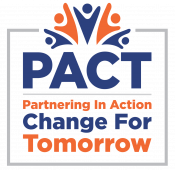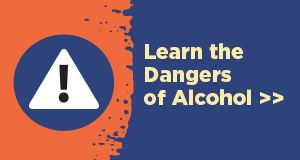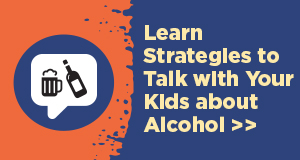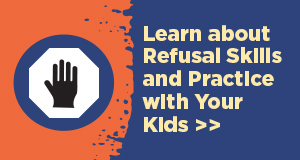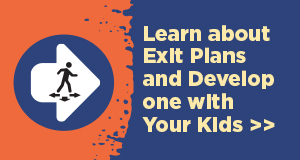
Parents: Let’s Do Our Part.
Help Our Kids Understand the Dangers of Underage Drinking.
Alcohol is the most widely used substance among youth, and underage drinking poses enormous health and safety risks. In Nassau County, underage drinking and social hosting (providing alcohol to a minor) is against the law. The earlier in life a person begins to use alcohol, the more likely they are to develop alcohol use disorder.1
Research shows that parents are the #1 reason young people decide not to drink2 but only 50% of our teens report their parents talked with them in the past year about the dangers of alcohol.3 Talking with teens is crucial to help them make healthy decisions when it comes to alcohol. Parents of middle school kids: You may think, My child isn’t drinking yet. Isn’t it too soon to be worried about drinking? The answer is NO. Some kids experiment with alcohol as early as age 10. And even if your child is not drinking alcohol, they may feel pressure to drink from their peers. By not communicating the dangers of underage drinking, we give the impression alcohol use is ok for kids.
Keep reading to learn about the dangers of alcohol, how to talk to your kids about alcohol, how to help kids practice refusal skills and how to make an exit plan.
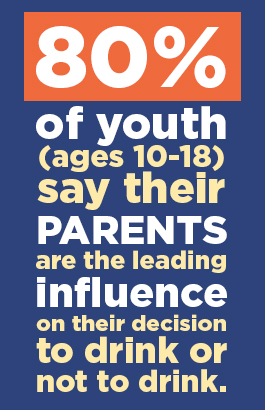
Act Now…Alcohol And Teens Don’t Mix!
Learn the Dangers of Alcohol
Drinking alcohol can be dangerous, especially for our kids.Familiarize yourself with some of the dangers before you speak with your kids about underage drinking so you can be informed and answer their questions.
- Underage Drinking is dangerous to your child’s health and safety.
- Causes many deaths: Alcohol is a significant factor in the deaths of people younger than age 21 in the United States each year. This includes deaths from motor vehicle crashes, homicides, alcohol overdoses, falls, burns, drowning and suicides.
- Drinking alcohol from an early age and in excess increases the risk of developing various cancers including cancers of the mouth, esophagus, pharynx, larynx, liver and breast.
- Causes many injuries: Drinking alcohol can cause youth to have accidents and get hurt. In 2011 alone, about 188,000 people younger than age 21 visited an emergency room for alcohol-related injuries.
- Impairs judgment: Drinking can lead to poor decisions about taking risks including unsafe sexual behavior, drinking and driving and aggressive or violent behavior.
- Increases the risk of physical and sexual assault: Underage binge drinking is associated with an increased likelihood of being the victim or perpetrator of interpersonal violence.
- Can lead to other problems: Drinking may cause youth to have trouble in school or with the law. Drinking alcohol also is associated with the use of other substances.
- Increases the risk of alcohol problems later in life: Research shows that people who start drinking before the age of 15 are at a higher risk for developing alcohol use disorder later in life. For example, adults ages 26 and older who began drinking before age 15 are 5.6 times more likely to report having alcohol use disorder in the past year compared with those who waited until age 21 or later to begin drinking.
- Interferes with brain development: Research shows that young people’s brains keep developing well into their 20s. Alcohol can alter this development, potentially affecting both brain structure and function. This may cause cognitive or learning problems and/or increase vulnerability for alcohol use disorder, especially when people start drinking at a young age and drink heavily.
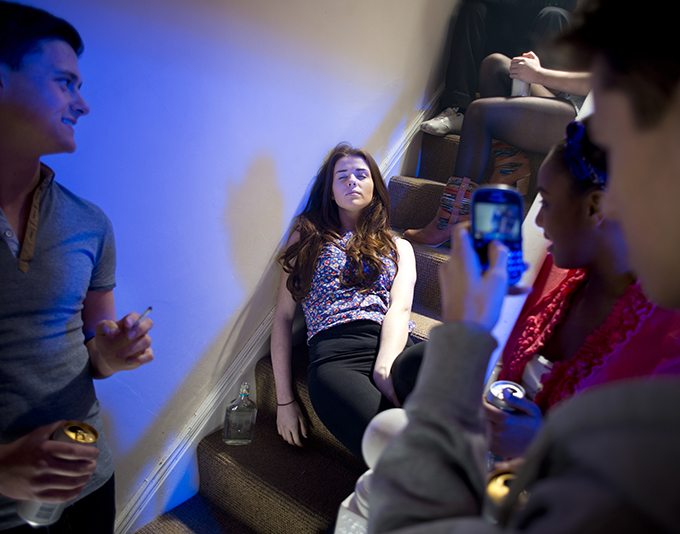
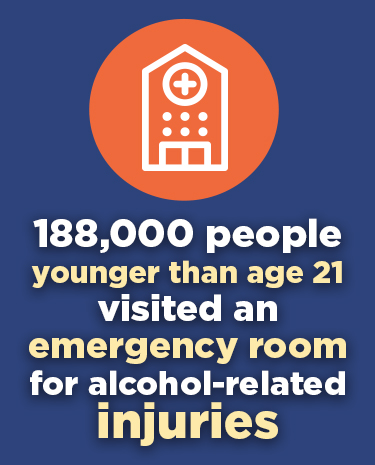
Learn Strategies to Talk with Your Kids about Alcohol
Kids say their parents are their biggest influencer…more than their friends and more than social media. So, talk with your kids about alcohol including the dangers of alcohol and underage drinking.
Everyday moments are the best times to talk with kids about the dangers of alcohol and other drugs. Talking early and often lets them know our expectations, reinforces our message over time and promotes ongoing open dialogue instead of just one big talk.
- Choose informal times to talk; let them know you care about their health and safety.
- Communicate the risks of substance use through young adulthood.
- Be clear and consistent about your expectations regarding alcohol.
- Identify healthy family activities to create opportunities for bonding with your kid.
- Practice refusal skills with them.
- Work together with your kid to create an exit plan.
- When they go to a party or out with friends, check in frequently to see how they are doing
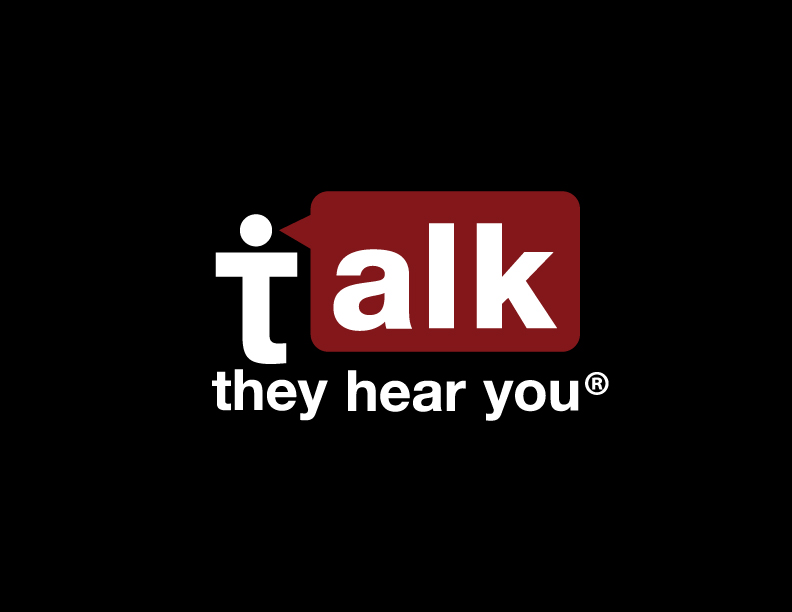
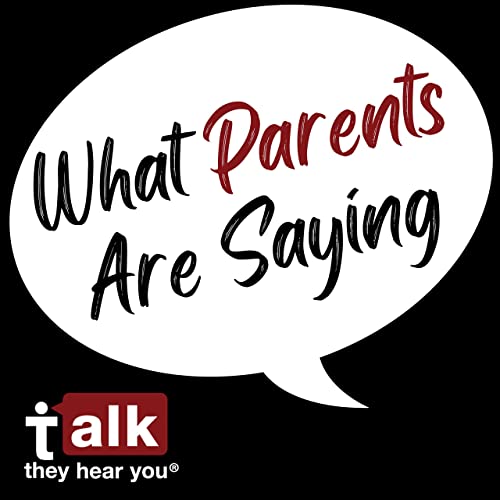
There’s A PODCAST To Listen To!
The Substance Abuse and Mental Health Services Administration (SAMHSA) has created the “Talk. They Hear You.” podcast What Parents Are Saying — Prevention Wisdom, Authenticity, and Empowerment. This podcast will help parents and caregivers can get informed, be prepared and take action by having open and honest conversations with their kids about substance use and mental health. Hosted by Debbie Berndt, Director of Parent Movement 2.0, the podcast features discussions with parents, caregivers and nationally recognized experts lending their unique perspectives and experiences on how to navigate conversations around these important topics.
And There’s An App For That!
SAMHSA’s “Talk. They Hear You.” mobile app helps parents prepare for one the most important conversations they may ever have with their kids. The app shows how to turn everyday situations into opportunities to talk with our children about alcohol and other drugs, and equips parents with the necessary skills, confidence and knowledge to start and continue these conversations as our kids get older.
Get The App Now
Download the app in Google Play or Apple or Microsoft to get the conversation started!
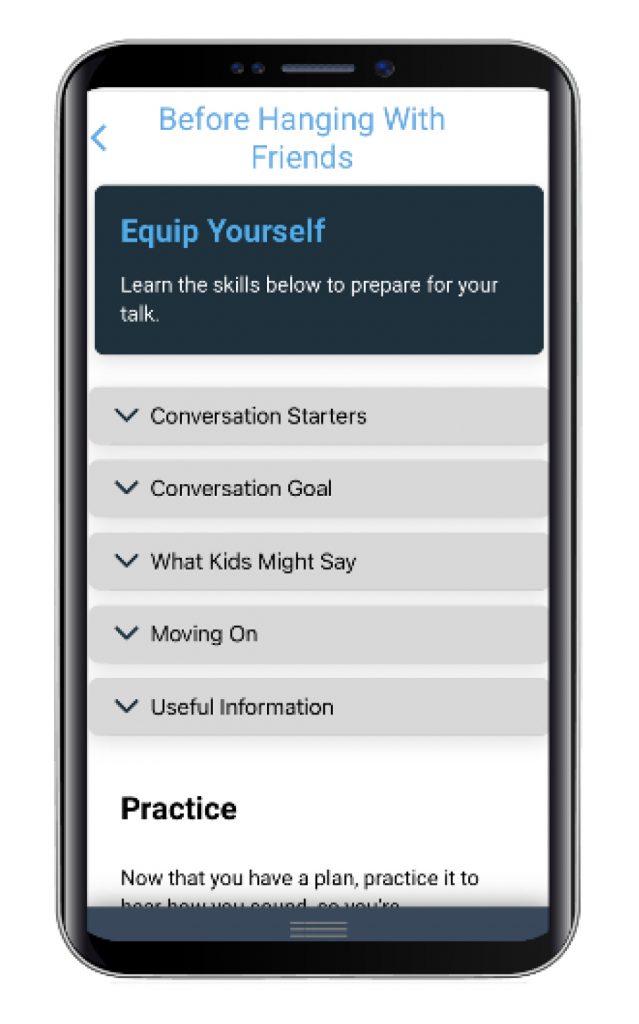
The app features sample conversation starters, ways to keep the conversation going, an interactive practice simulation section and the opportunity to earn badges for practicing and having real-life conversations. It also includes a resources section with informative and useful videos, fact sheets, brochures, infographics, guides/toolkits and more.
Learn about Refusal Skills and Practice with Your Kids
While kids are generally good at making excuses, they may need help to get out of risky situations involving alcohol. Work with your kids to prepare answers when they are asked if they want a drink or alcohol. Practicing these refusal skills will help them be more confident if the situation arises.
Ideas For Refusal Comebacks
- I can’t, I’m driving.
- No thanks, I’ve tried it and I didn’t like it.
- I want to keep a clear head.
- I have a paper due.
- I have a big game tomorrow.
- No thanks, I’m not into alcohol.
- I don’t want to ruin my chances of a scholarship.
- I’ve been in trouble before with my parents for drinking. If I’m caught again they’ll take my phone (car, allowance, etc.) away!
- I could get suspended from the team.
- I’d like to dance instead.
- Alcohol makes me sick.
- I’m just not into alcohol.
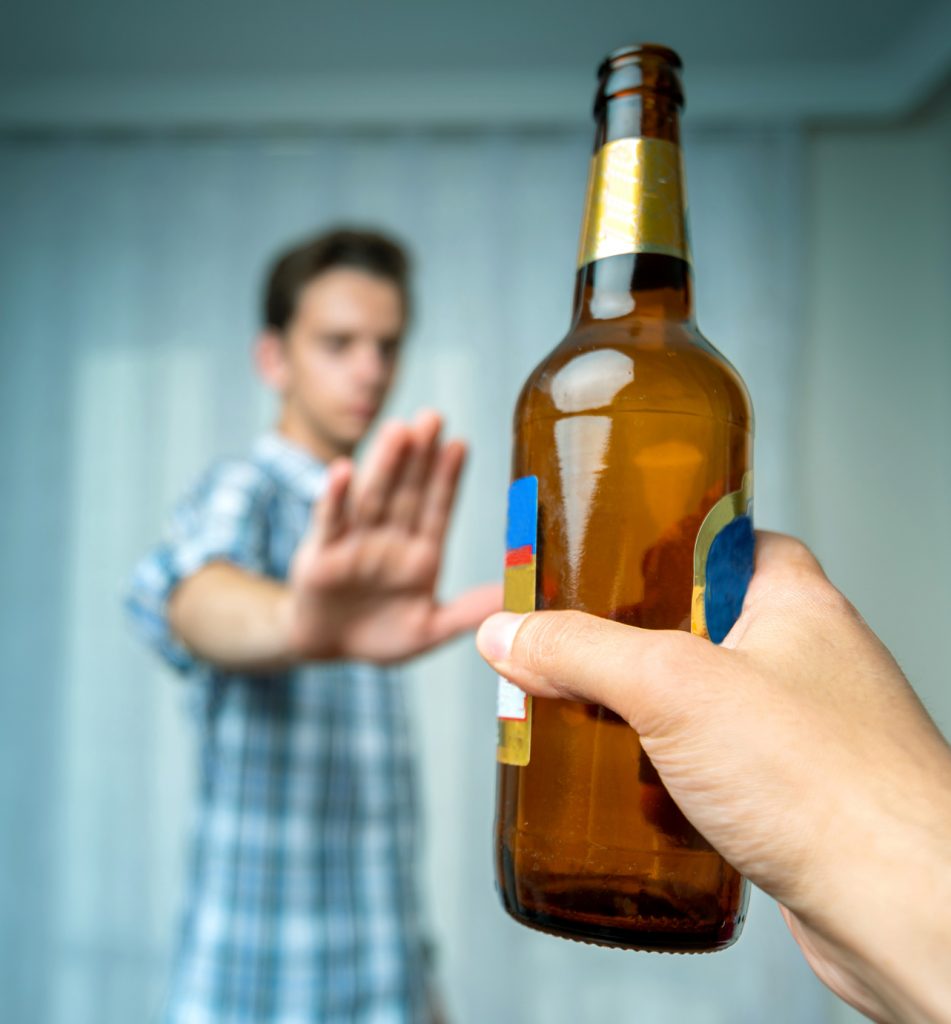
Learn about Exit Plans and Develop one with Your Kids
If your kid is faced with an uncomfortable situation outside of the home, such as at a party, and they feel pressure to use alcohol, sometimes the best thing for them to do is leave. A prearranged exit plan will help them get home safely.
Developing an exit plan empowers kids, teens and young adults to feel safe and protected when faced with an unsafe situation. Come up with a word or symbol for your kid to text to you, their siblings, or another trusted adult when they feel unsafe. When that symbol is received, the adult will call the kid to advise that there is an emergency at home and they need to be picked up right away. This provides them a way out of an uncomfortable situation without losing face with peers.

Resources & Sources
- SAMHSA’s Talk. They Hear You. Campaign
- Centers for Disease Control: Underage Drinking
- NYSOASAS Empowering Teen Refusal Skills
- National Institutes on Alcohol and Alcoholism
- American Academy of Pediatrics: Alcohol the Most Popular Choice
- Mother’s Against Drunk Driving (MADD) Power of Parents:
- New York State Office of Addiction Supports and Services: Underage Drinking
- https://www.samhsa.gov/sites/default/files/uad_conversation_goals_tall.pdf
- 2020-21 PACT Schools’ DFC Core Measures Survey for Youth Grades 6-12 for Farmingdale, Island Trees, Levittown and Massapequa Public Schools
